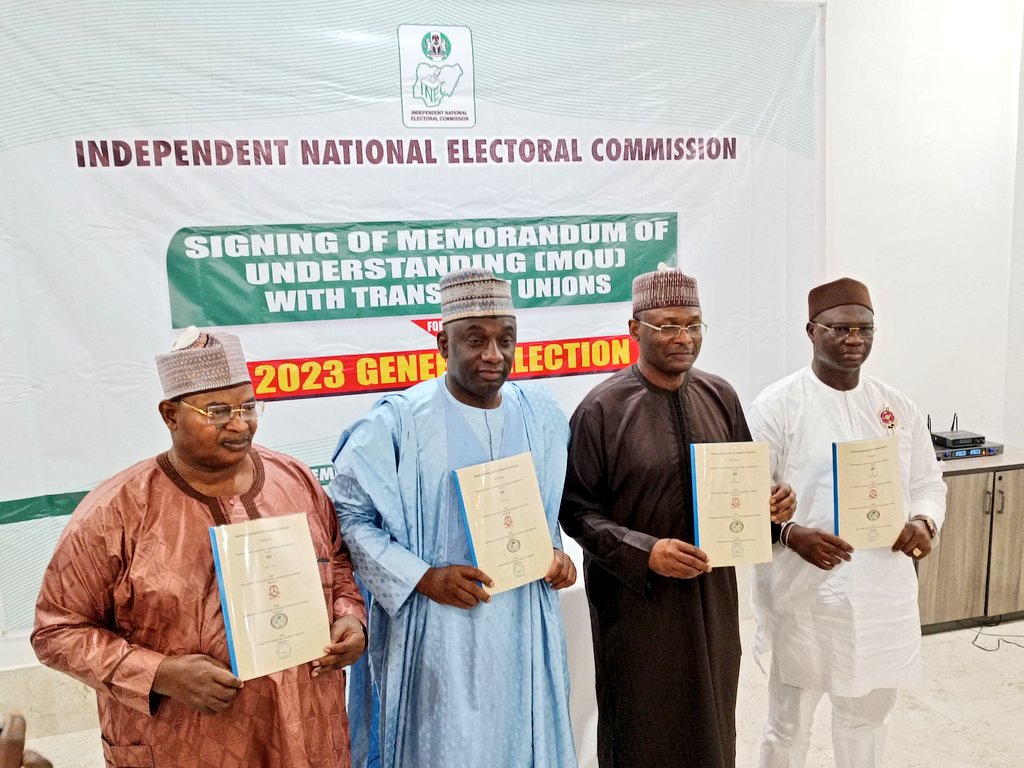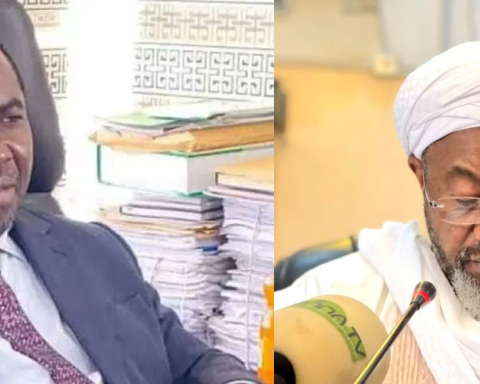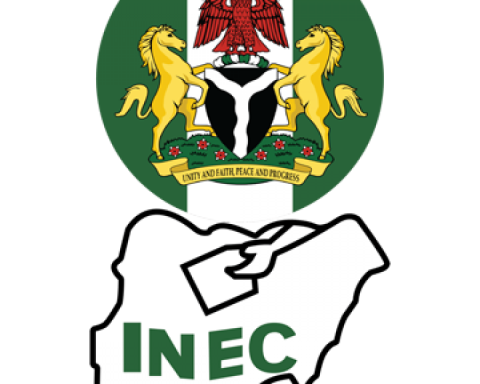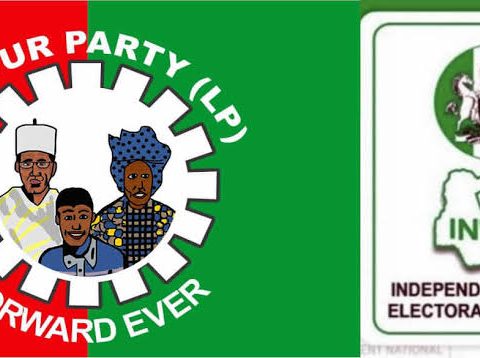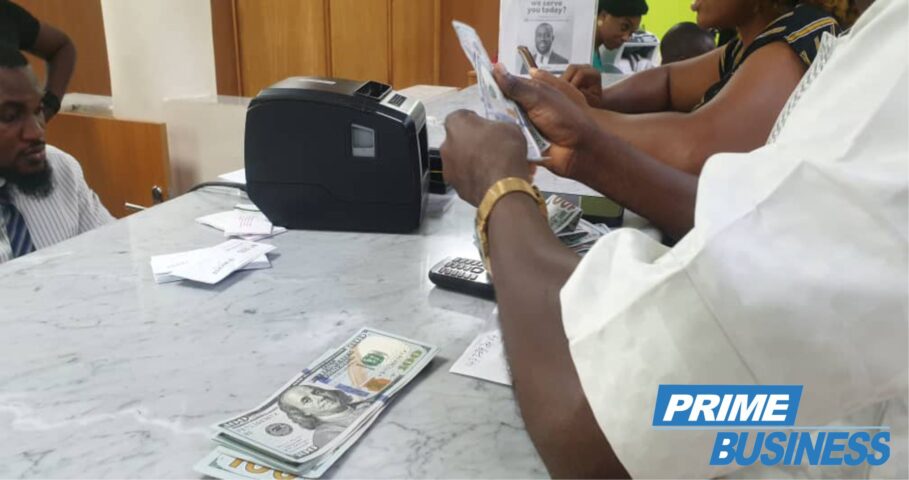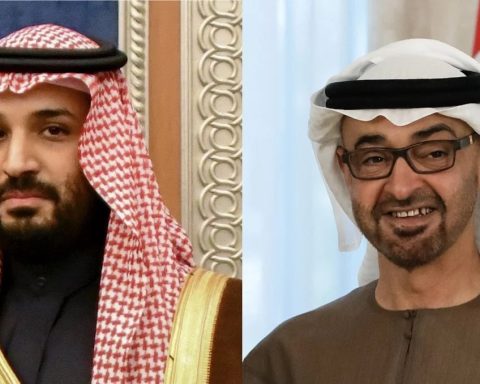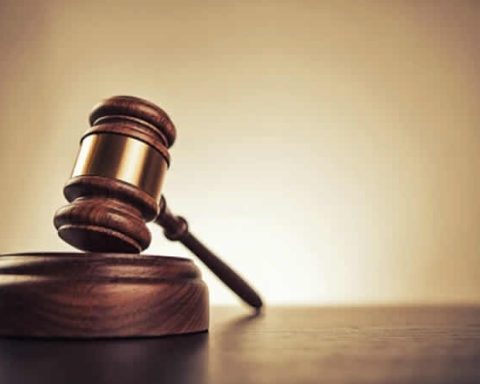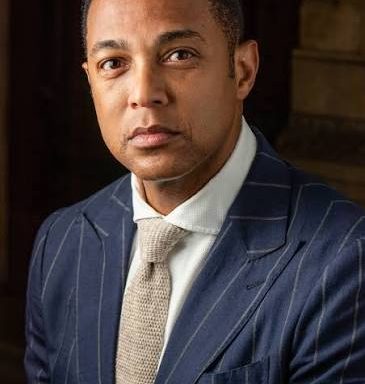As the 2023 general elections approach, the Independent National Electoral Commission (INEC) has signed a Memorandum of Understanding (MoU) with road and marine transport unions to facilitate successful deployment of personnel and materials during the polls.
INEC Chairman, Prof Mahmood Yakubu, in his address during the signing ceremony held in Abuja on Tuesday, December 20, said it was based on the realisation of the critical role of transportation in the conduct of elections in Nigeria.
Join our WhatsApp ChannelProf. Yakubu signed the MoU with Presidents of National Union of Road Transport Workers (NURTW), National Association of Road Transport Owners (NARTO) and the Maritime Workers Union of Nigeria (MWUN) in the presence of INEC National Commissioner, Resident Electoral Commissioners (RECs), secretary of the commission and development partners.
The INEC chairman, who said the commission, had signed the first MoU with the NURTW in January 2015 and, subsequently in 2018, prior to the 2019 general elections, explained that this time it has undertaken a comprehensive review of the process to learn critical lessons in planning for the 2023 General Election and beyond.
“The signing of a revised MoU with the road and marine transport unions today is a demonstration of our determination to implement key recommendations of the review exercise in order to enhance forward and reverse logistics in our electoral operations.
“The 2023 General Election will involve the nationwide deployment of over 1 million personnel and massive quantities of materials twice within a period of two weeks from our State offices to 774 Local Government Areas, 8,809 electoral Wards and 176,846 polling units across the length and breadth of our country.
“It will require over 100,000 vehicles and about 4,200 boats that will be accompanied by naval gunboats. This is a huge undertaking that must be accomplished in the next 66 days and we are resolute in doing so to give Nigerians a pleasant voting experience.”
The INEC boss assured Nigerians of the commission’s determination to ensure that polling units nationwide opens at 8:30 am on the election day.
In order to achieve that, he said INEC requires large number of vehicles, and boats to convey the commission’s staff and election materials to polling units across the nation on time.
“In order to ensure that personnel and materials will be at the polling units on Election Day awaiting the arrival of voters rather than the other way round, INEC requires large numbers of vehicles, including motorcycles, tricycles, boats and canoes in the riverine areas which cannot be met from its internal resources. It was for this reason that the Commission signed the first MoU with the NURTW in January 2015.
“In order to expand the pool of our service providers to meet the requirement for the increasing number of vehicles, the MoU was reviewed in December 2018 to incorporate NARTO. Over the years, the Commission has come to rely on the partnership with the NURTW and NARTO to provide vehicles for the successful deployment of electoral personnel and materials.
“However, we did not incorporate the Maritime Workers Union of Nigeria (MWUN) within the ambit of the MoU, a situation which has often resulted in logistics nightmare in the deployment and retrieval of personnel and materials to the riverine areas of the country. This oversight is now addressed by the revised MoU to include MWUN comprising of sailors, dockworkers, and those in related trades in our electoral logistics planning and delivery.”
He said the latest MoU is a general framework, but the contractual agreement between the commission and the service providers (transport unions), will be worked out at the state level between officials of the unions and Resident Electoral Commissioners and Electoral Officers.
“The agreement which is legally binding will be based on the actual breakdown of the number of vehicles, tricycles, motorcycles, boats and canoes per State. It is therefore significant that our Resident Electoral Commissioners are present here today to witness the formal signing of the framework that will enable detailed work at the State and LGA levels. I am also glad that the Unions are represented by their national leaders and as many of their zonal and State officials.
“It is our expectation that the leadership of the unions will effectively supervise their members in the various chapters and branches for the full implementation of the MoU. In doing so, you will be required to work very closely with our Resident Electoral Commissioners and collaborate with the Federal Regulatory and Safety Agencies to ensure that the objectives of the MoU are fully realised in terms of required road/seaworthiness and safety standards of your vehicles and boats,” he further stated.
The INEC chairman warned that everyone involved in election duties including motorists that will deliver electoral logistics must adhere to the commission’s oath of neutrality, assuring that security operatives will be on the ground to escort all vehicles and boats to all locations to ensure safety and protection of election personnel and materials.
Yakubu also disclosed that the commission would electronically track the movement of all vehicles and boats in real-time to ensure that election personnel and materials are not diverted.
He urged transport union leaders to abide by the MoU to avoid the ugly experience of the past regarding logistics delivery and advise their members to see the role as a call to national duty by ensuring that there is no failure on their part.
Yakubu thanked the transport unions and development partners for their sacrifices in past elections and the consolidation of the nation’s democracy.
Victor Ezeja is a passionate journalist with seven years of experience writing on economy, politics and energy. He holds a Master's degree in Mass Communication.


